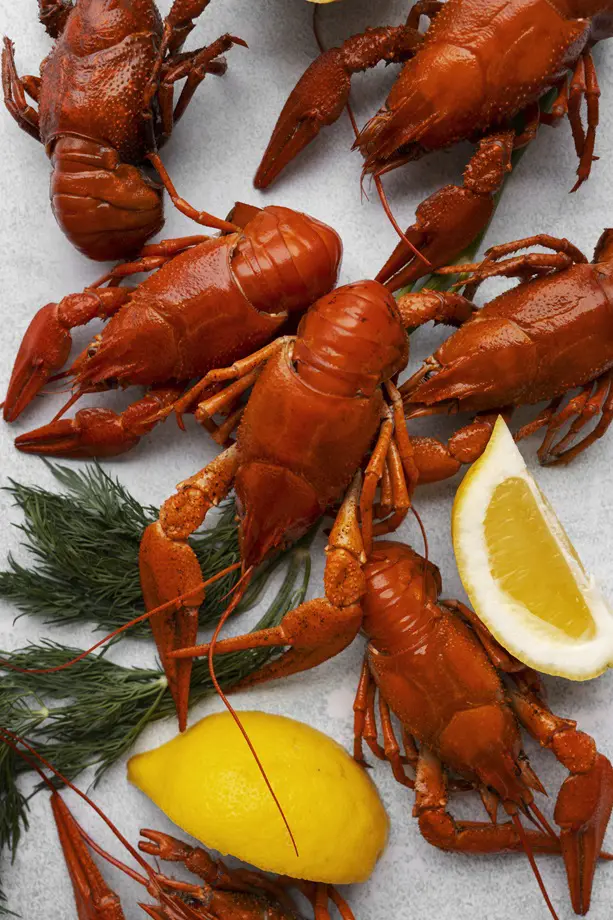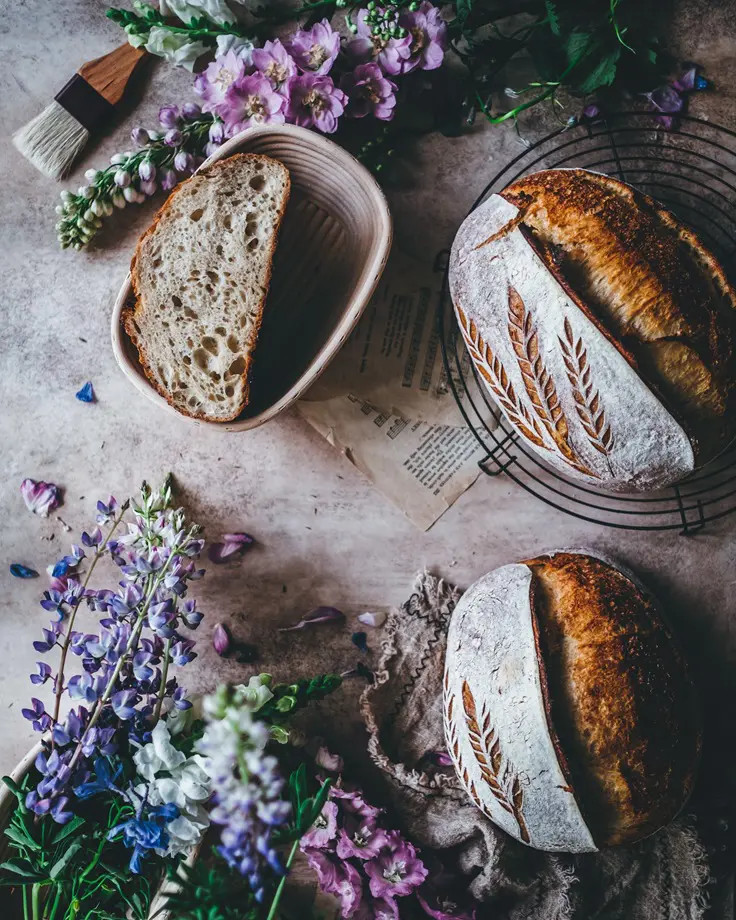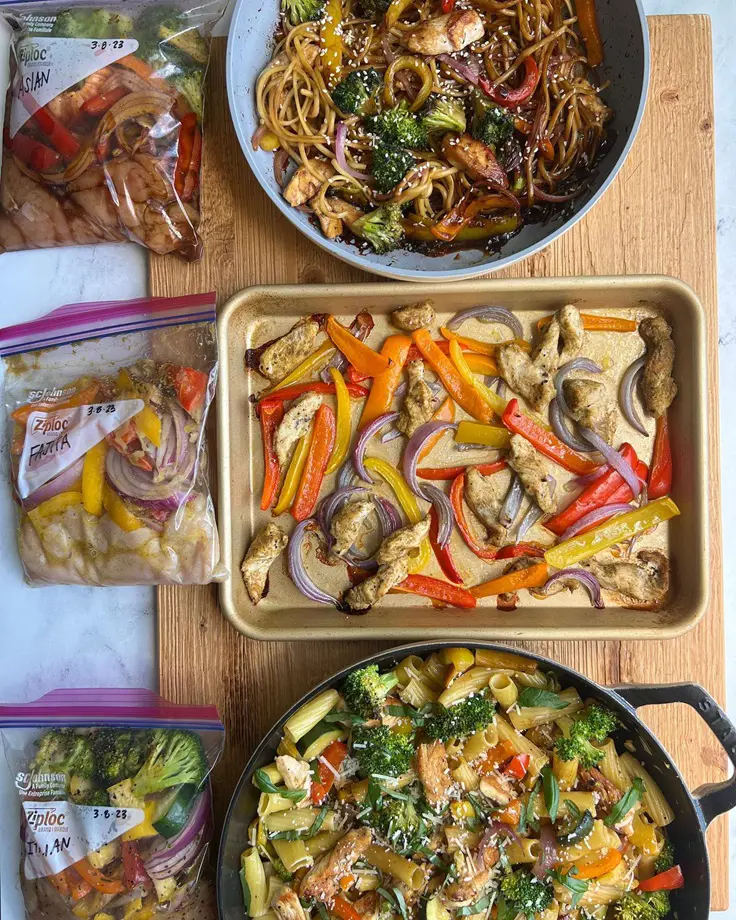Is Vegan Diet Actually Healthy?
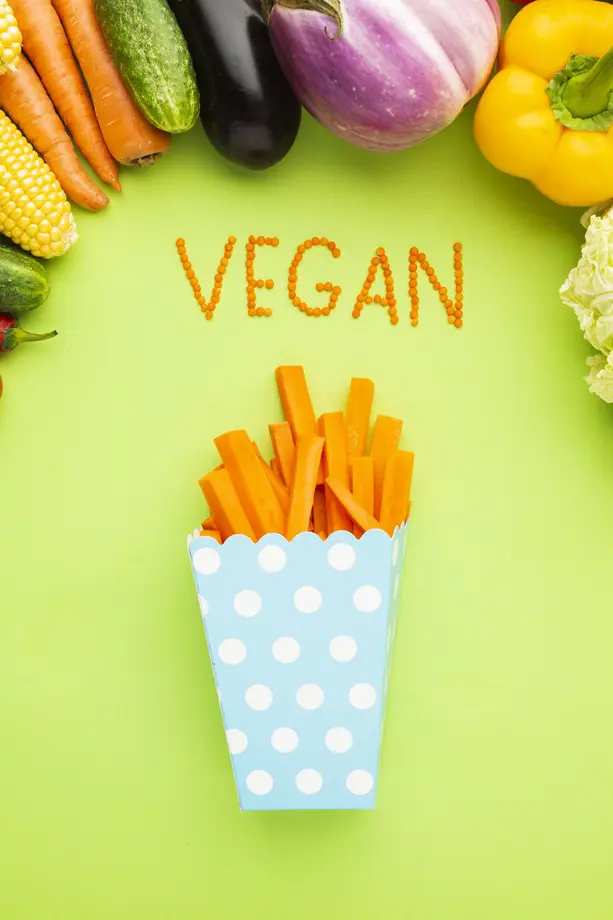
This post may contain affiliate links. If you make a purchase through links on our site, we may earn a commission.
A vegan diet is considered healthy but not most of the time. As all vegan foods have many beneficial nutrients, they also lack some which often sparks the debate. Without animal products, a vegan diet can be believed to have significant health benefits, while others argue that it may lead to deficiencies in essential nutrients and increase certain health risks.
To exactly decide how healthy a vegan diet is, it's important to look at the various components of a plant-based diet, the nutrients it provides, and the potential risks associated with eliminating animal products.
What Is A Vegan Diet?
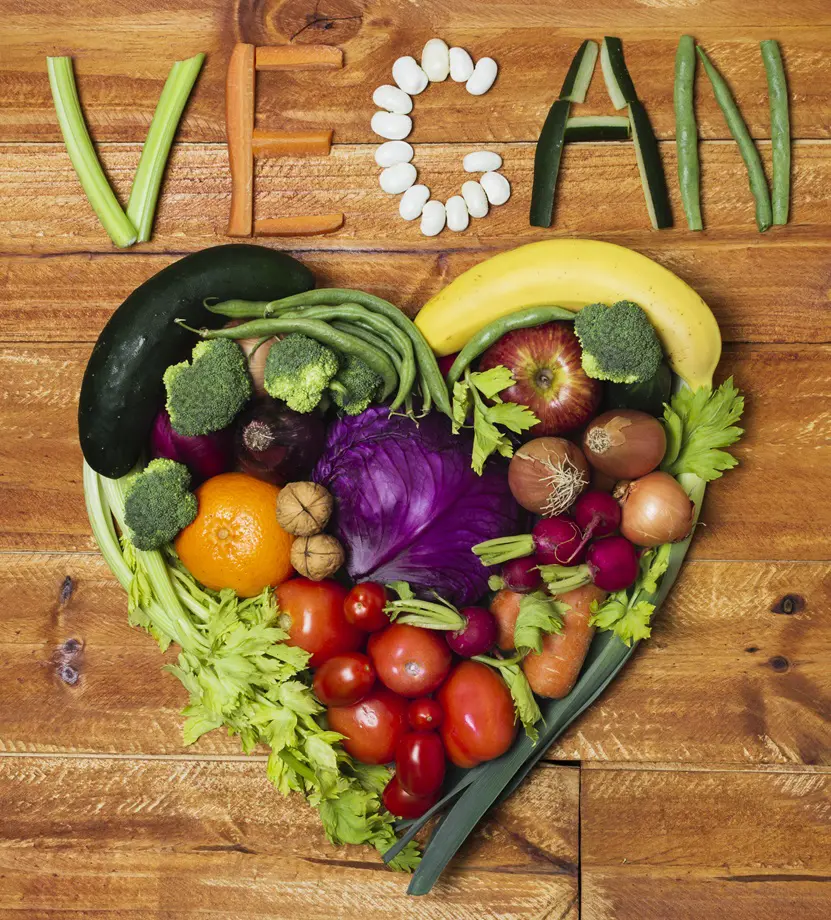
The "vegan" term was recently introduced in 1944 to describe people who didn't consume animal products. Contrary to a vegetarian diet, a vegan diet totally excludes all animal products including milk, eggs and whatnot.
Though introduced late in the food industry, the global vegan food market has a value of around $30 billion as of 2024. This data shows that a lot of people around the world are adopting this diet, mainly because of health and ethical concerns; with proponents citing concerns about animal welfare.
Though questions about nutrition balance arise while following a vegan diet, it's possible to meet all the needs by opting for a proper food source. Moreover, there are many health benefits of a well-planned vegan diet, and most of them are supported by studies as well.
Nutrients In Vegan Diet
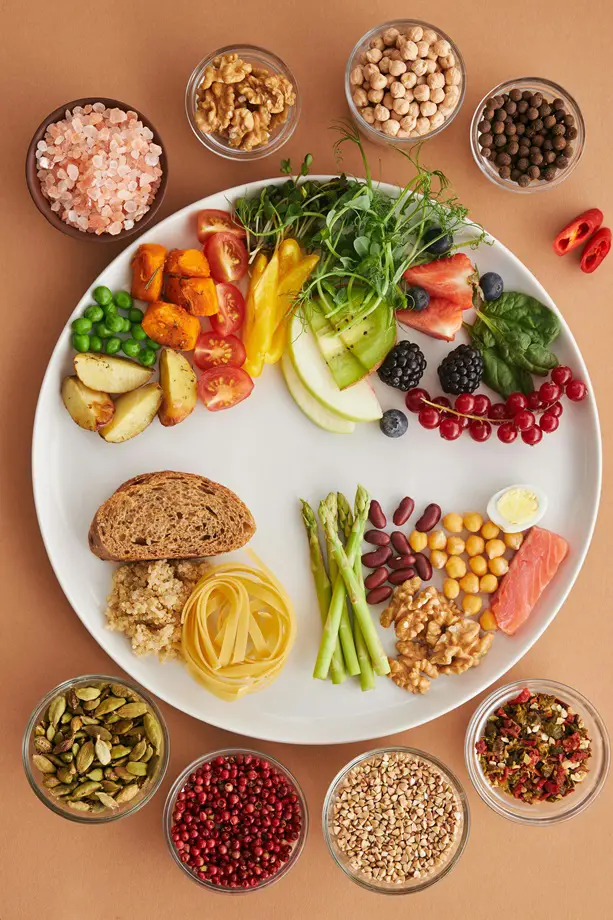
A vegan diet has all the nutrients plant foods have to offer. The key ones are listed below:
- Protein: There are many plant sources that are full of protein, so, the concern related to insufficient protein that animal foods are rich in may not be valid here. All legumes (mainly soybean which is also known as the meat of the field), nuts, seeds and whole grains, when thoughtfully included in the diet, can be helpful to meet the requirement of 50 grams of protein perfectly.
- Carbohydrates: Plant foods are abundant in carbohydrates and there is no chance that opting for a vegan diet can lead to deficiencies related to this macronutrient. Rice, root vegetables like potatoes and fruits are carbohydrate-dense.
- Fats: Vegetable oils, avocados, nuts and different seeds have healthier fats than the ones that come from animal sources. The absence of cholesterol and saturated fats in these sources is what makes it a perfect choice for daily use.
- Fiber: Almost all dietary fibers come from plant sources. A vegan diet is all about plant food so, following this, you will surely be getting all the fibers from your food.
- Vitamins: Vitamin A, C and many B vitamins can be found in plant foods. Green vegetables and fruits are important sources of these vitamins.
- Minerals: The essential minerals needed for the functioning of our body are also found in foods that are a part of the vegan diet. Calcium can be found in greens, iron in beans, magnesium in greens, nuts and seeds and zinc in whole grains, legumes and seeds.
- Omega-3 Fatty Acids (ALA): The alpha-linolenic acid (ALA), a form of omega-3 fatty acids is present in plant-based food. Flaxseeds, chia seeds, walnuts and soybeans are some foods vegans can eat to meet the daily recommended intake of omega-3 fatty acids.
Benefits of A Vegan Diet
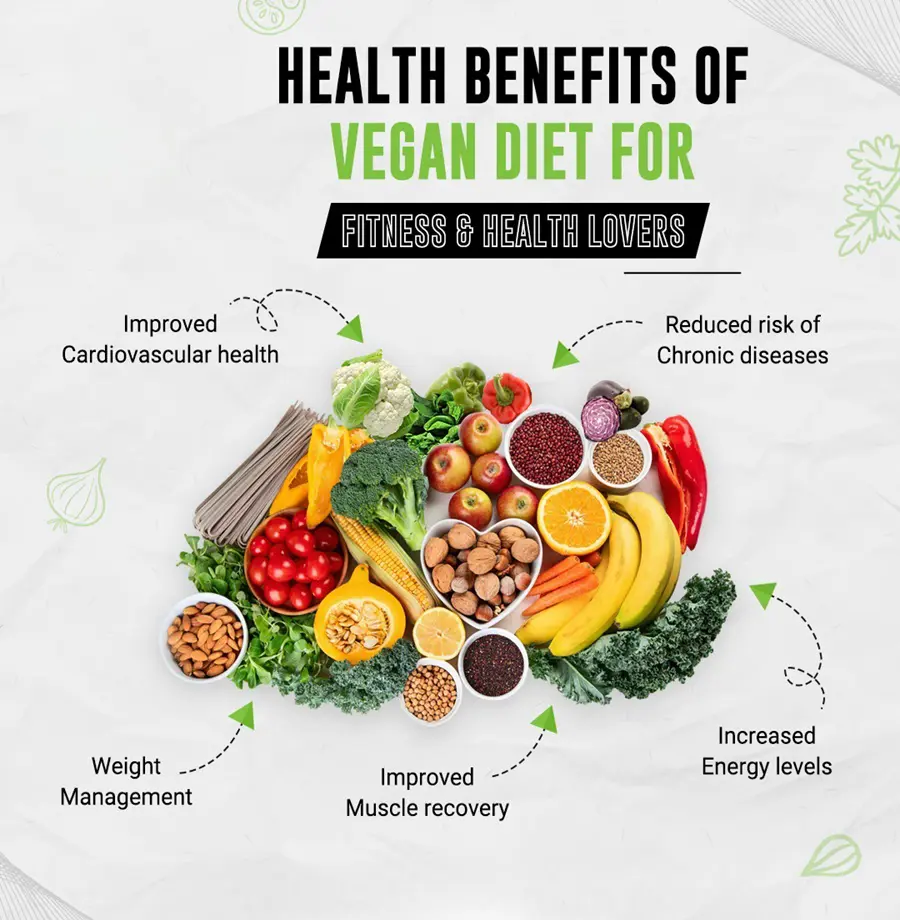
There are numerous health benefits associated with a vegan diet. Let's have a look at the important ones that a long-term balanced vegan diet has to offer:
Reduced Risk Of Heart Disease
Firstly, the vegan diet has almost little to no unhealthy fats, the saturated ones. These fats when accumulated in the body cells, particularly the heart and blood vessel cells, can block the blood flow throughout the body. This, if continues for a prolonged time, can lead to different heart-related conditions.
Besides being saved from the unhealthy effects of saturated fats, a vegan diet also keeps you free from cholesterol. This is another heart-risky fat that is only found in animal foods.
The important nutrients present in plant foods like antioxidants and other bioactive compounds present in fruit and vegetables, on the other hand, keep the heart cells healthy. They prevent the chronic damage of heart cells and blood vessels, as a result, the functions related to the heart run optimally.
Regulated Blood Sugar Level
The fibers present in plant foods prevent the sudden release of sugars in the blood. Hence, a continued vegan diet means no sudden spike in the blood glucose level, reducing the occurrence of diabetes.
Good For People With Diabetes
For people who already have diabetes, it's important for them to be wary of foods that immediately increase their blood sugar levels.
If the vegan diet only focuses on whole foods and retains away from processed ones, it would be helpful for diabetics to keep the complications related to diabetes in check. When these people follow the vegan diet, their insulin sensitivity also rises, which is important to stay fit and healthy.
Helpful In Managing Weight
Many people who want to lose weight are known to avoid meats and other animal-based foods in order to avoid unnecessary fats in their diet. A vegan diet is usually in low calories, despite that, they are fulfilling when balanced with fiber and protein-rich food options.
Obese and overweight people when switch to a vegan diet, they not only avoid animal-based high-calorie diets but they also open ways to effectively reduce their weight. Emphasizing fulfilling, whole nutrient-dense foods is what helps here.
Promotes Healthy Digestion
The dietary fibers present in plants support our digestive system to function at its peak. The fibers present in vegan foods increase the food's bulk in the intestine, promoting smooth flow and hence proper digestion.
Avoiding meats and animal proteins also means there is no lag in the bowel transit time which can lead to unwanted delay in digestion. The effects of this can be seen as gas and bloating.
Lowered Inflammation
The fruits, vegetables and whole grains people consume in a vegan diet have a lot of beneficial compounds called antioxidants to offer. These beneficial compounds are anti-inflammatory, meaning, they won't let unwanted inflammatory reactions progress in the body.
So, anyone who goes vegan for a long time, gifts his/her body with all the antioxidants present in nature, and the result shows up as a healthy body that has no trace of chronic inflammation, which is the driving cause of conditions like heart disease, cancers, arthritis and even diabetes.
Can Reduce Risks Of Cancer
Red meats and highly processed meat products contain compounds that can trigger the body cells to divide abnormally. This often leads to an unwanted and deadly disease called cancer.
When one opts for plant foods, he would get nutrients like antioxidants which protect cells from unnecessary divisions. Vitamin C and vitamin E are some important compounds that we obtain from plants and they guard the cells in our body, ensuring we don't have to suffer from any type of cancer. Fibers present in plant food on the other hand are known to flush out any carcinogens; cancer-causing agents, present in our body.
Nutrients Vegan Diet Is Devoid Of
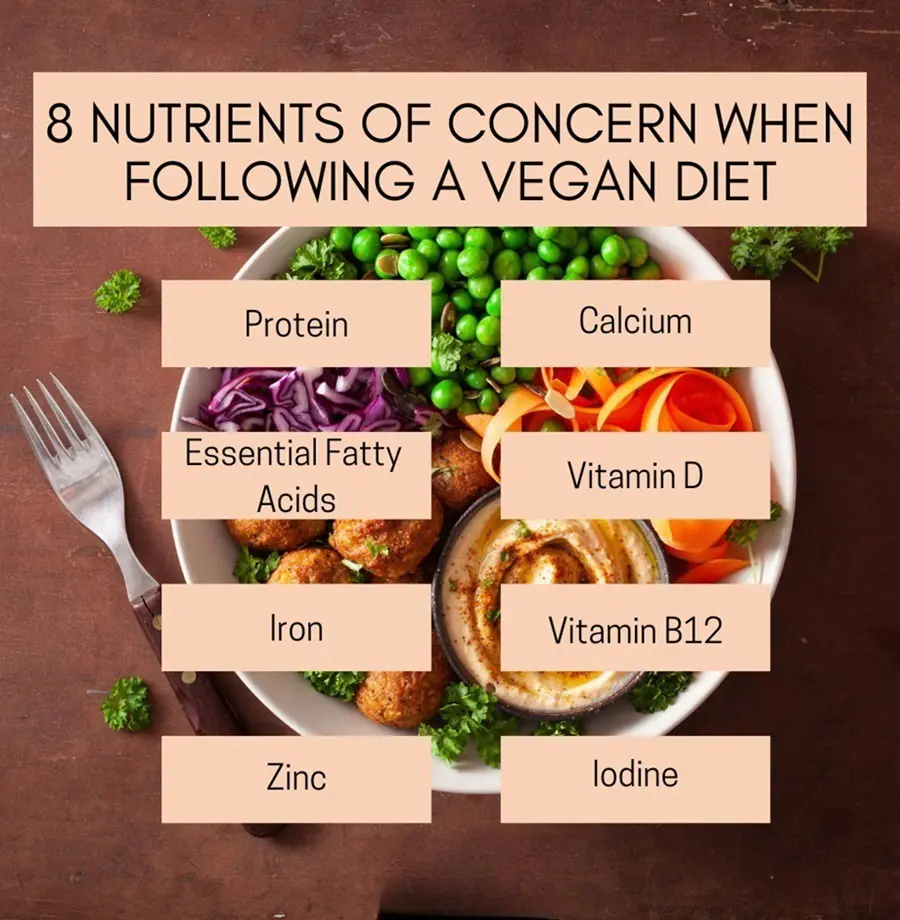
You can't obtain some nutrients from plant-based food sources alone. These nutrients need careful attention when one is on a vegan diet as their deficiency can lead to deteriorated health. Here are important ones that people following a vegan diet can go totally devoid of:
- Vitamin B12: Vitamin B12 is primarily found in animal products. So, vegans might have a hard time meeting the B12 requirements, unless and until they depend on the supplements.
- Vitamin D: Except for the sunlight, animal foods are also a prominent source of vitamin D. In the unavailability of animal foods in the diet as well as sunlight, vegans may have to take vitamin D supplements.
- Omega-3 Fatty Acids (DHA): Though flaxseeds and chia seeds contain alpha-linolenic acid (ALA) form of omega-3 fatty acid, another form of the fatty acid called DHA/ Docosahexaenoic acid is mainly found in fish. So, cutting out animal foods means there is a high risk of omega-3 fatty acids in vegans.
- Heme Iron: Heme iron is present in animal products and unlike the iron found in plant-based foods, they carry oxygen in the body readily. To avoid iron deficiency, it's better for vegans to pair iron-rich foods with vitamin C-rich foods. This can be helpful in increasing the absorption of iron in the body.
- Zinc: The presence of compounds called phylates, in plant-based food sources makes zinc absorption difficult. However, zinc from animal foods can be absorbed efficiently without any hindrance. So, in people who choose to be vegan, there is an increased chance of zinc deficiency.
- Calcium: Calcium is also an important mineral present in high amounts in animal foods. Certain vegan foods, the fortified ones can only be proper sources to meet the required daily value.
Vegan Vs Other Diets
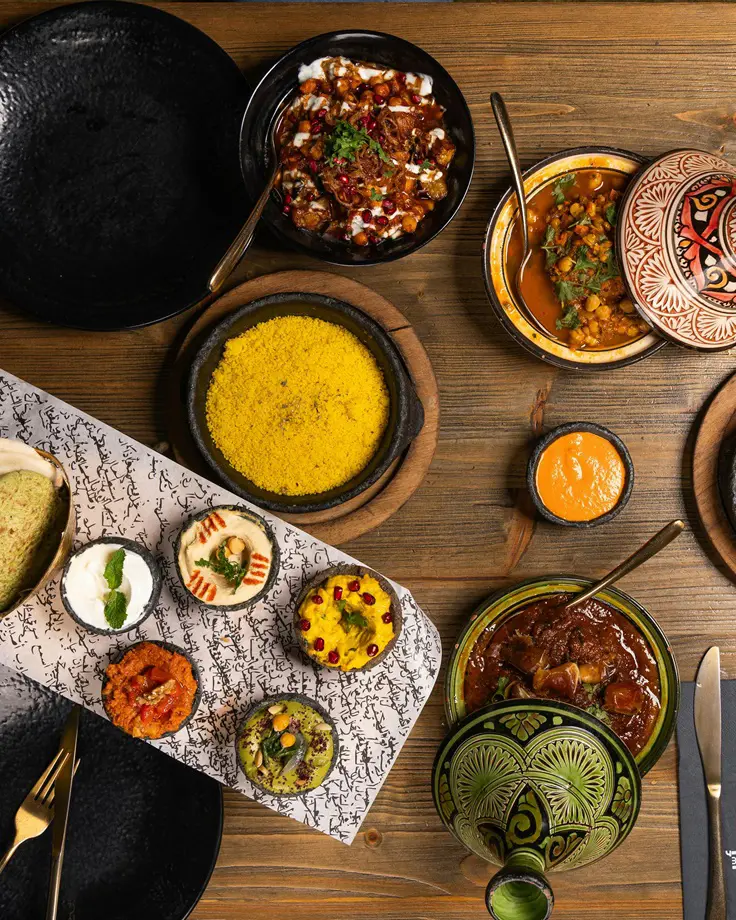
Let's compare the vegan diet with other popular dietary patterns and evaluate the health impacts of each:
Vegan Vs Omnivorous Diet
An omnivorous diet has both sources of food; plant and animal. This means that, for the people following this diet, there won't be a deficiency of any kinds of nutrients that are meant to be obtained from foods; especially the ones like heme iron and vitamin B12 that are only available in animal foods.
However, there are some nutrients in omnivorous diets that when consumed in excess are health-concerning; saturated fats and cholesterol are the best examples that are known to be harmful to our body. Moreover, if the diet is more focused on red and processed meats, there is an increased risk of chronic diseases like cancer.
Vegan Vs Vegetarian Diet
Anyone following a vegetarian diet only avoids meat. They still can eat other animal products like dairy and eggs.
As compared to vegans who can't get certain nutrients that come from animal foods, vegetarians can rely on available animal products, having an easier time meeting their nutritional needs.
Is Being Vegan Good For All Ages?

If the vegan diet provides all the necessary nutrients, then it can be suitable for people of all ages. However, considering that some nutrients are not available in plant-based sources, some age groups may not benefit from being vegan. Here are specific age groups for which veganism is questionable:
Children
Growing children are the ones who need the most of all nutrients. The growth and multiplication of cells in bones, muscles, brain and other body cells need a supply of adequate amounts of calcium, vitamin B12 and protein.
Children hence need to be supplied with foods that contain all these nutrients, making veganism less favorable for them. In case they are vegans, it's best to take advice from a dietitian or pediatrician to help their growth process.
Older Adults
Once we start to age, our body requires the proper supply of nutrients like calcium. As bone density starts to decrease, with the consumption of the needed amount of essential nutrients, the chances of degradation are reduced.
Similarly, older adults are victims of memory loss and other conditions like anemia. So, food sources are an important medium to remain healthy as we age, but if we are vegans, the tendency for our body system and cells to get support for the nutrients from our diet is comparatively low. Overall, though a vegan diet is healthy for adults, it might not be proper for people of old age.
Postmenopausal Women
With menopause, the health of women starts to degrade. They are more prone to suffer from diseases that come with the decrease in estrogen levels. Osteoporosis is one of the common conditions, in which they should be consuming proper amounts of vitamin D and calcium.
Vitamin B12 in diet should be increased as well, in order to overcome the decrease in the absorption rate of this vitamin that comes with menopause. Iron and omega-3 fatty acids are some other critical nutrients that need to be present in the diet in high amounts as compared to that in the diet of a healthy adult. So, veganism might be a bad idea for this group of women, and in case they already follow a vegan diet, it's better to include supplements in the diet so they don't have to face the deficiency.
Bottom Line
The vegan diet is a proper diet to remain healthy for lifelong. People who follow this diet have less chance of suffering from chronic diseases compared to the ones who are on an omnivorous diet. The main reason behind plant-based foods being healthy is the nutrients they are composed of, the beneficial compounds present in these foods are abundant.
Saying a vegan diet is healthy, there are also "buts" that need to be considered. For instance, developing babies who need a proper supply of nutrients for overall growth and older ones whose bodies can't work without an adequate supply of nutrients, may have to bear deficiencies of nutrients that vegan foods don't offer. So, in these cases, opting for foods that provide all the important nutrients is quite more important.
Recent posts
Lifestyle
Lifestyle
How To Eat Crawfish The Right Way
A crawfish is a small crustacean that resembles a tiny lobster. Though small in size, this freshwater creature is equally delicious as any other seafood, they are tender, sweet and a little salty. Enjoying crawfish may seem challenging as they are ti...
Lifestyle
Expert Ways To Eat Poppy Seeds
Poppy seeds are small yet powerful because of their nutty taste and crunchy texture. Mild and gentle addition to any dish, they are a staple ingredient in cuisines around the world; you can find them in curries in India and in baked goods in Europe. ...
Lifestyle
How To Stop Snoring: 15 Home Remedies To Get Rid Of
A huge part of population have to lose sleep just because of snoring. If we look at the data from the studies, it has been reported that around two thirds to half of the population are affected by this common issue. What makes this problem more conce...
Lifestyle
Is Sourdough Bread Really Healthy?
Sourdough bread is not just another bread; it's a time-honored and naturally fermented food. With the use of all-natural ingredients, even the yeast, the bread has a unique flavor and texture to offer. Chewy, crusty and sour, sourdough bread is appre...
Lifestyle
20 Foods That Are Bad for Your Heart
Sadly, cardiovascular disease ends one life every 33 seconds, and that, indeed is an extremely tragic moment. Hence, giving your heart great importance and keeping it healthy is so important for overall health, and what you eat can make a big differe...
Lifestyle
20 Foods That You Can’t Freeze
Freezing foods can be a realistic time-saver, it is one of the most convenient ways to preserve food in our kitchens for later use. It can do both, reduce food waste as well as save time in food preparation. However, there are exceptional cases...
